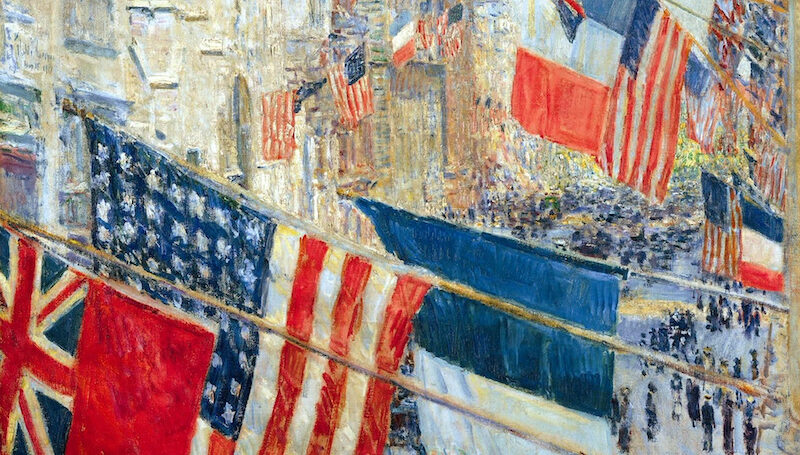Published in The Martlet
On 6 February in the Old Library, Charles Moore, Margaret Thatcher’s authorized biographer, former editor of The Spectator, The Sunday Telegraph, and The Daily Telegraph, delivered Pembroke’s second Adam Smith Lecture in Political Economy, “Has the ‘Iron Lady’ Rusted? Margaret Thatcher and the Crisis of Capitalism.”
Given Moore’s credentials, no one in the audience that packed the Old Library was surprised that he defended Baroness Thatcher. After all, the legacy of the former Prime Minister, arguably the greatest modern political advocate of capitalism, is seen to be teetering on a precipice due to the “credit crunch.” Offering a comprehensive and balanced assessment of that legacy, Moore sought to safeguard Thatcher’s reputation by positing that the mode of economics that has flourished since the collapse of the Berlin Wall has proven to be a far cry from the purportedly noble, gentle, and moral capitalism of Adam Smith to which she subscribed. “If this was Thatcherism,” Moore remarked of the recent trend in economics, “it was vulgar Thatcherism.”
Moore laid bare the stakes for Thatcher and, indeed, all proponents of capitalism. Most in the West, he maintained, believe that they have been living and working within an unambiguously free-market system since the end of Soviet Communism and, therefore, capitalism must be primarily responsible for the global financial meltdown. Moore conceded that Mikhail Gorbachev’s claim that “bourgeois democracy” was a system “designed to fool people about who really controlled the levers of power” appears more apposite today than it was when it was uttered in 1987. Further, he admitted that it is difficult to discount the Marxist contention that society’s “superstructure,” which is comprised of central banks, regulators, governments, courts, and even the media, either allowed or failed to prevent the creation of an unfair playing field on which citizens were fooled into thinking “that their activities were essential to the growth of prosperity and opportunity.”
The body of Moore’s lecture comprised an explication of two aspects of Adam Smith’s thought that have most informed Thatcher’s own attitudes and, specifically, her opposition to the self-styled wisdom of recent generations. The first was Smith’s “faith in the capacity of human beings to make their own living honestly and well, if only governments will let them.” It was this “moral” principle of “unlocking the natural desire for self-betterment” that governed her approach to tax, regulation, privatization, property and the relationship between trade union leaders, workers, and the public. Thatcher’s second “Smithian inspiration,” and the one that Moore emphasized, was “the powerful perception that commerce is too valuable a thing for it to be ultimately controlled by businessmen.” Thatcher, like Smith, believed that commerce was to be an activity transparently operated by the many, not an endeavor to be opaquely manipulated by the few.
This conviction is what caused her to challenge those with vested interests who alleged “without their monopoly, there would be dangers to health and safety, or national security.” As such, Thatcher understood that bankers and financiers were just as prone as bureaucrats and trade union leaders to conspire against the public. Moore noted that it is “an irony of history more apparent than real” that Thatcher was personally close to very few bankers. “Just as she was suspicious of the Foreign Office because she thought it was for foreigners, so she was suspicious of the Bank of England because she thought it was for bankers, and therefore trying to frustrate her efforts to control the money supply.” Moreover, while Thatcher was in favor of deregulation, she aimed to prevent nationalized industries becoming private sector monopolies. Moore acknowledged that she was not always successful in this area, notably in gas. “Contrary to her own myth, she was not invariably mistress in her own house.”
To that end, Moore proffered a series of concessions that appeared to preempt any claim that he was engaged in little more than whitewashing. In particular, he affirmed that several of Thatcher’s initiatives were “certainly part of the context, if not the cause, of the credit crunch.” They included the abolition of exchange controls in 1979, the reduction of the top rate of income tax from 83% to 40%, and the “Big Bang” of deregulation in 1986. Moore also critiqued Thatcher for not having fully recognized “the tension between her belief in the importance of global free markets and her equally strong belief in the independence of the nation state.” In her support for the European Single Market in the mid-1980s, she “ignored the problem that this was part of a political project which was intended to smooth down competition rather than promote it, and to take power away from elected governments and transfer it to fonctionnaires in Brussels.” Finally, she “gave in to her ministers” and fastened Britain to the European Exchange Rate Mechanism, causing it to be “chained to and then broken by the needs of a newly reunited Germany.”
Still, on the whole, Moore was sympathetic to Thatcher. It is a testament to her foresight and perseverance, he professed, that “almost no one” calls for a return to the economic system that prevailed in Britain before May 1979. What is fair is that the Iron Lady be judged like every other mortal, one who, by virtue of being human, was limited in her capacity to survey the manifold complexity of society. “In any event,” Moore concluded, “no one who currently holds a position of power in the world has worked out how to establish a right relationship between the democratic answerability of independent nations and the free movement of people, money, goods and services in a world where the exchange of that money and those services is often transacted not in weeks or months or years but in seconds.”
